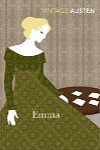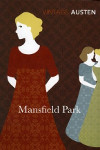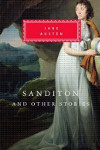Jane Austen – Sense And Sensibility
Posted 11th May 2010
Category: Reviews Genres: 1810s, Romance, Social
1 Comment

Before she wrote as Jane Austen, one of England’s most famous writers was entitled “A Lady”.
Publisher: (Numerous, but I’d wager Vintage would be a good one)
Pages: N/A
Type: Fiction
Age: Adult
ISBN: N/A
First Published: 1811
Date Reviewed: 30th April 2010
Rating: 3/5
Having now read Pride And Prejudice and Persuasion it was only right I continue on in my task to become well acquainted with each of Austen’s works.
Elinor and Marianne are two very different sisters with very different tastes in men but neither of them realise that what seems to be is not always what is. When Elinor falls for Edward Ferrars and Marianne for Willoughby the future looks bright for both of them but they live in ignorance of the secrets of their lovers.
It is quite clear from the writing and plot development that this is the work of a person still coming to understand themselves as a writer. At 20 years of age and in a society where people tended to keep solely to their communities it’s understandable that Austen’s work would be less polished than many debut writers of today; however that’s not to say it’s awful, there may well be some awkward moments where better editing would have sufficed in bringing the story to a higher level, but the overall quality speaks of promise rather than imminent failure.
The issues to be addressed therefore are as follows: the storyline. It takes a good third or so of the book for the story to pick up and gain momentum and indeed any reasons for continuing. The story drags its feet behind the family on their various trips to and from their friends’ abodes with no sign of being anything more than a look at a number of incredibly regular and boring existences. Austen should have combated this by inserting more points of interest, as she later did for Pride And Prejudice.
The other issue is confusion, and I have found this to be discussed in biographies so I know that my saying so is not completely in error. Austen seems not to know whether she likes Elinor or not. Elinor comes across as a sensible, kind soul and then suddenly turns round and tells her sister not to write to their mother because she is writing to their mother already. It may be that at the time Marianne was in the full throws of passion for Willoughby but the way in which Elinor communicates her response is downright nasty and by that very effect confusing. It comes without warning.
Something that Austen excels in, however, is in articulating rivalries and the eternal struggle women have had with each other when it comes to loving the same man. She tells us from the beginning when a character is perhaps not telling the full truth in order to be spiteful, and then proceeds to cleverly trick us into not believing her (Austen) before bringing it all together nicely, but without any hint of “I told you so”.
Austen, as in her other novels, presents age-old issues between the relations of men and women. Her male characters are as dastardly as any character in a British soap opera (I’m thinking of Eastenders, since you ask) and as confusing to women as many men in real-life (and probably British soaps too).
There is not much time given to describing locale although in a way that’s an asset because it lets you form your own imagination while concentrating on the action, or lack of it. Sense And Sensibility, perhaps more so than Austen’s later novels, is character based. With fewer characters than some of her novels but at the same time with more issues presented, it all comes together, after that first dull third, to create a busy narrative.
There are some fantastic quotations to be had in this book:
The ivory, the gold, and the pearls, all received their appointment, and the gentleman having named the last day on which his existence could be continued without the possession of the toothpick case, drew on his gloves with leisurely care, and bestowing another glance on the Miss Dashwoods, but such a one as seemed rather to demand than express admiration, walked off with an happy air of real conceit and affected indifference.
But of the writing otherwise I’m afraid I have to revert back to the negative, at least for the most part. There are a few errors that could’ve done with a once over and throughout the book there seems a problem with was/were and gave/given. I can’t say this for certain, because I know that the book is set mostly in the country and people quite possibly spoke very differently there at that time but it is difficult to read a book by someone held in esteem when they are delivering dialogue, of people with money, that reads like the spoken word of people nowadays who are considered lacking in education. To read sentences beginning with the like of “you was going to” and “I have gave him” makes for a distraction from an otherwise engaging story. So I would like to be able to trust that this is simply the cause of accents and not something that should have been vastly edited.
With Sense And Sensibility, Austen obtained on a big undertaking, to write her first full-length novel, and to fill the pages with a work that would stand equal in entertainment on shelves dominated by male authors. That she succeeded is far from debatable but that this is the best example of her writing is not. Sense And Sensibility is an average novel but one which proclaims the possibilities for later perfection – which as we all know, happened.
Related Books
1 Comment
Comments closed




























May 17, 2010, 1:23 pm
I’m glad to read I’m not the only one with mixed feelings about Sense and Sensibility. I never really tried to reread it, because to me it’s one of her slower and more boring books.